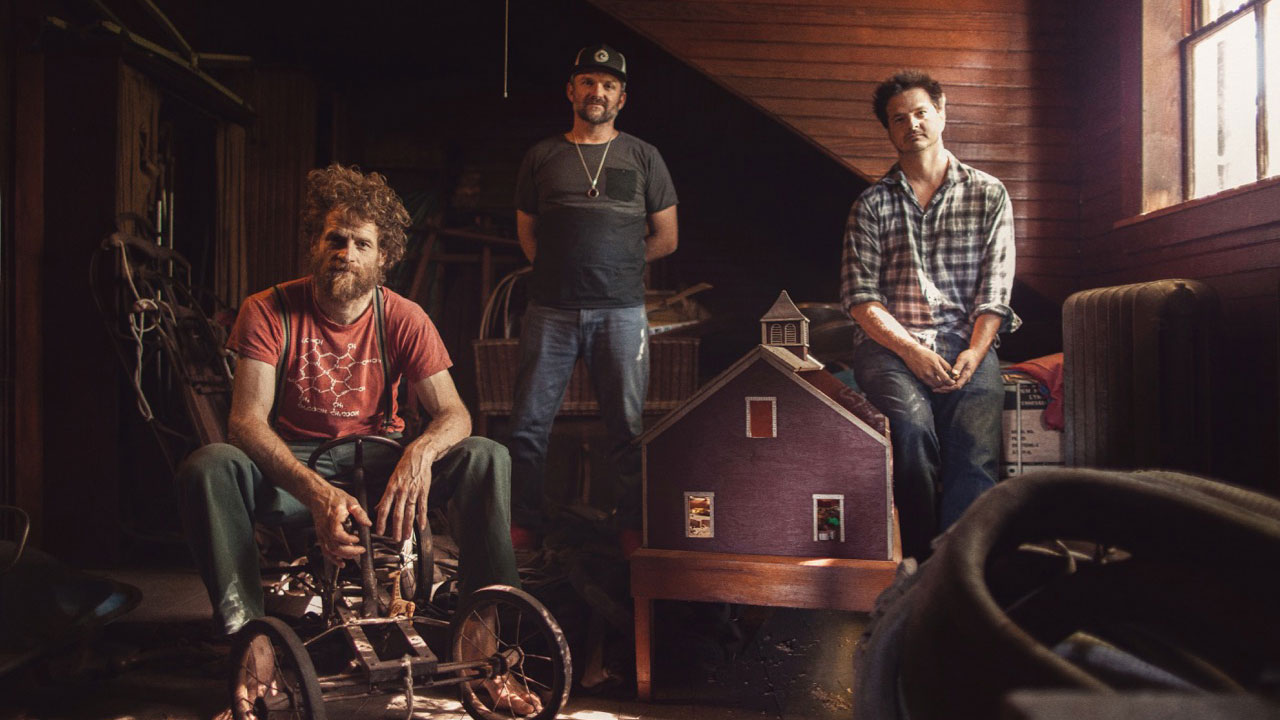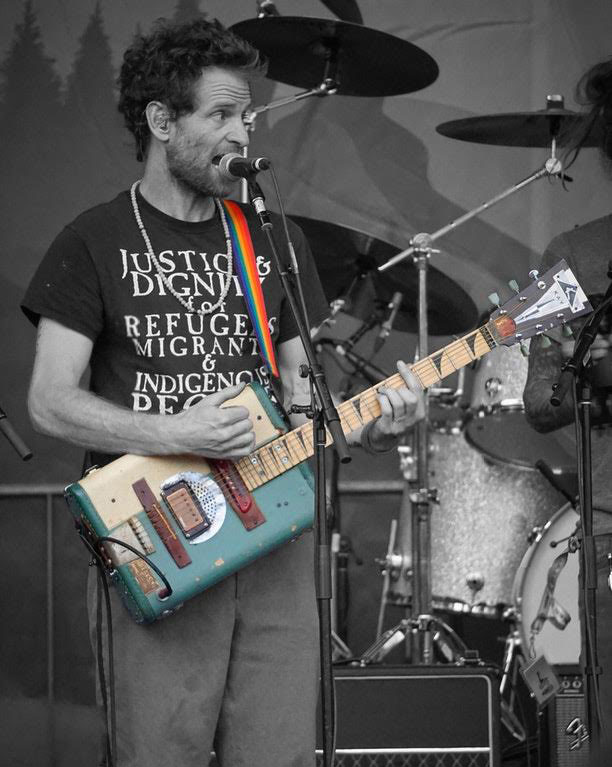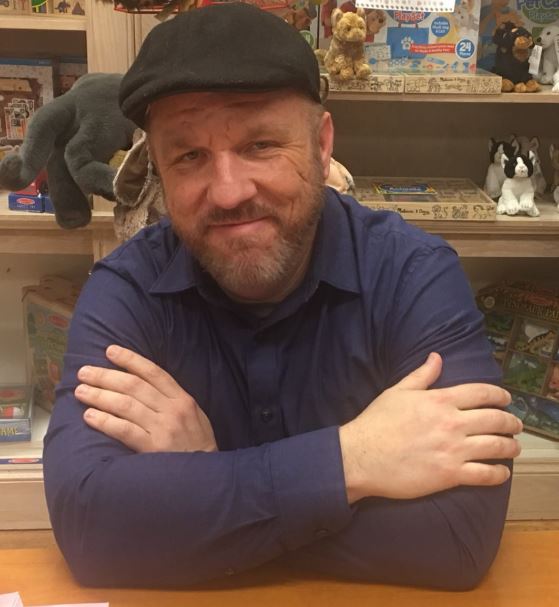Dispatch Guitarist Chad Stokes Discusses the Band’s New Album, ‘Location 13’
On 'Location 13,' Dispatch show the passion and vigor of a band in its infancy and the experience of one that’s been together for more than two decades.

Following the success of their first album in five years, America, Location 12, Dispatch—along with producer John Dragonetti and engineer Mike Sawitzke—went back to the studio to wrap up some recording they didn’t finish the first time around.
The result is Location 13, a collection of material the band has been steadily releasing, one song at a time, every few weeks throughout the summer and will culminate as an album after the last song is released.
The new album finds the band continuing to push boundaries and break new ground. With honest, emotional storytelling and an eclectic sound that infuses the best elements of rock, Americana and folk, Dispatch are entering a new era with the passion and vigor of a band in its infancy and the experience of one that’s been together for more than twenty years.
Guitar World recently sat down with Chad Stokes, the band's guitarist, to talk about Location 13, gear and more in this new interview.
How does the music on Location 13 compare to some of the band’s previous work?
This album came on the heels of America, Location 12. I see them both as siblings to each other, but this one is a bit darker and a little heavier. The songs we’ve written over these last two years feel more cohesive compared to our recording and writing processes of years gone by.
What was the writing process like?
Get The Pick Newsletter
All the latest guitar news, interviews, lessons, reviews, deals and more, direct to your inbox!
For me, it usually starts with just messing around with a melody line on a guitar. If it sticks with you as the days go by, then you start fleshing it out. As you start working on it more you begin to see if the song is showing up. Sometimes, you feel like you may be walking through mud, but if you keep walking you get that little extra thing that tells you the song is worth finishing and sharing with the guys.
Let’s discuss a few tracks from Location 13, beginning with “Letter To Lady J."
That song started right around the time when Eric Garner was killed by police in New York. It was preceded by Trayvon Martin and followed by Michael Brown and Tamir Rice. I’m not anti-police at all and have great friends in the field, but there is a racial problem we have in this country with authority, profiling, fear and accountability. The chorus is vague enough to be about justice, but for me the genesis of the song came from police brutality and the overuse of violence and lack of accountability.
How about the track “Black Land Prairie?”
I’ve always been interested in the years 1820-1890 in the U.S. and what was happening across the country. It’s been a constant theme for me. That song is told from the perspective of a solider who’s just come out of the Civil War and is now involved in the cavalry going to fight against different Native American tribes. He’s conflicted about fighting and has this premonition that it’s his death march. Sonically, it was exciting to share with Brad [Corrigan] because he’s a huge Alice In Chains fan. The song has a CSN feel with the three-part harmony, but the chorus is Alice In Chains goes acoustic.
What about “London Daughters?"
Brad wrote that song. It’s about trying to end the cycle of violence and asks the question, how do we learn to forgive so that we don’t repeat the last war?
What was it like working with John Dragonetti and Mike Sawitzke on this album?
It was amazing. The palette that John and Mike drew from and where they came from is the best thing that’s happened [to us] in a long time. They both come from a place where they weren’t familiar with Dispatch, so there was no preconceived path as to who we were and what we do. They just loved the songs and wanted to make a great record. In that case, it was very fresh. They approached it from a very artsy level, with lots of Sixties and Seventies sonic searching. John is on the edge of everything art; whether it’s visual or sonic. It was nice to bring those things together.
What’s your current setup like?
My main guitar is a Creston. It’s a Jaguar/Mustang/Jazzmaster-type body. It’s very simple: just a tone, a volume and pickup switch with two P90s. My backup for that is a 1956 Les Paul Junior that someone modified twenty years ago with a neck pickup. So, it’s more like a Special. That also has P90s. Then, of course, I also have the suitcase guitar.
What’s the story behind that?
My buddy had been making me some stomp boxes and told me he was making some weird guitars and showed me one. It was something he’d just thrown together in about an hour. What’s amazing about it is that it has this great chimey sound that’s not quite acoustic or electric. I play all three of these guitars through my pedal board and through a 50-watt, 1973 Silverface Bassman amp and into an old Marshall cab.

What are you most looking forward to about this next phase of the band’s career?
There’s a lot of things that fire us up. We’ve been doing sexual harassment bystander training with volunteers and staff at venues before every show and continue to fight for gun safety and the de-stigmatization of mental illness. We also have an action village at every show where people can go and see the things were doing that inspires the music. It’s a cyclical thing on causes we care about and the things were singing about. Personally, I’m looking forward to performing some of the new songs we’re never played live before. Getting to play them for the first time is very exciting.
James is a guitarist and freelance writer who's interviewed some of the biggest names in music. He is the author of four books and his writing credits include work for Guitar World, AXS and Yahoo! as well as for his hometown newspaper where he writes on a variety of topics with both passion and humor. As a guitarist, he's performed everywhere from local bars and nightclubs to some of the biggest stages in front of thousands of music fans.
“There’d been three-minute solos, which were just ridiculous – and knackering to play live!” Stoner-doom merchants Sergeant Thunderhoof may have toned down the self-indulgence, but their 10-minute epics still get medieval on your eardrums
“There’s a slight latency in there. You can’t be super-accurate”: Yngwie Malmsteen names the guitar picks that don’t work for shred


![A black-and-white action shot of Sergeant Thunderhoof perform live: [from left] Mark Sayer, Dan Flitcroft, Jim Camp and Josh Gallop](https://cdn.mos.cms.futurecdn.net/am3UhJbsxAE239XRRZ8zC8.jpg)







